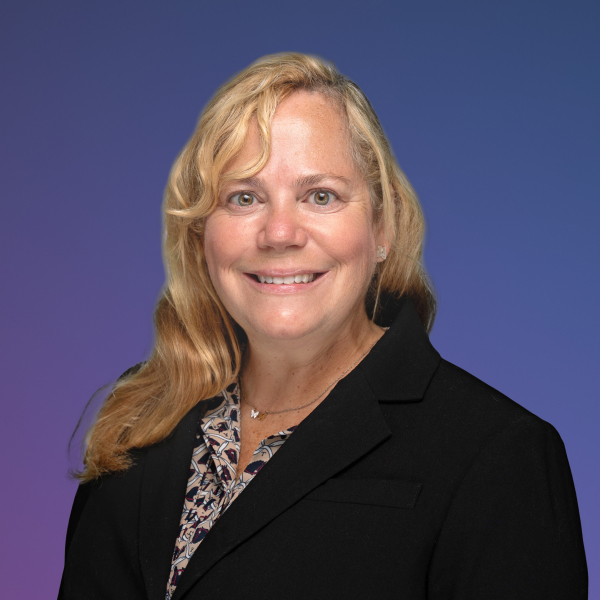3x CLO Bruce Wu on reaching the C-suite with intellectual curiosity and a human focus
March 20, 2025 | 4 min readAn MIT engineer by training, Bruce Wu describes himself as a business strategist who “happens to be a lawyer.” He’s been in the legal arena for almost two decades, the last decade of which was spent in-house. Recently, he’s returned to a law firm and is currently serving multiple startups as their fractional GC, as well as helping technology companies with their legal challenges.
Interviewing Bruce was fascinating to me because of how he brings many different perspectives together:
- A master’s focused on nanotech and PhD focused on medical engineering, both from MIT, which means his technical background covers emerging tech, cleantech, life sciences, biotech, AI, and coding
- Experience working in different company settings, from public to private and large to small
- Leadership positions that have spanned the functions of IP, legal, business development, and even people as a Chief People Officer
Bringing the human element and intellectual curiosity to legal leadership
Throughout all these experiences, Bruce has followed one North Star when guiding companies both in-house and externally: the human element of legal work. “You have to provide legal advice within the context of interacting with human beings,” Bruce explains. “If we take the human aspect out of it, any legal advice becomes devoid of context.” In fact, interacting with people is one main reason why Bruce got into law: “I like to learn from people and hope people will be willing to learn from me. Finding a path forward out of a challenging situation is something I have always enjoyed. It’s like solving a puzzle.”
How does Bruce bring the human element to law and IP? Intellectual curiosity and vulnerability — something Bruce knows can be uncomfortable for lawyers and engineers, but they have been central to his leadership style. “I identify with being a learner more than I do as a teacher. But it took a bit of a journey to get here,” Bruce offers. “Lawyers and engineers want to be right and exact, to convince and persuade, and to sometimes even one-up another. This fixed mindset can sometimes become a roadblock to being an effective leader. When I hire someone to join my team, I tend to look for people that are different from me. And if I’m going to hire people who know more than I do about a subject matter, for example, I’m going to have to first admit that there is something I don’t know as well as someone else. Sometimes, the best way to show strength and bring people towards you is being willing to be vulnerable and to stay intellectually curious.” Bruce credits his academic advisors for being a role model for being okay with him saying “I don’t know,” and his academic training for instilling in him the entrepreneurial spirit of answer-finding so that he can do something about what he doesn’t know.
Making the leap from focused IP to holistic legal leadership
Intellectual curiosity isn’t just what makes Bruce successful as a leader today. It’s also what let Bruce make the leap from an IP leader to a legal one. Working with commercial or corporate transactions, licensing, employment, privacy, and M&A taught him that the legal world is “so much bigger than IP and just as interesting as the IP world. So why not dive in and learn more about it?” From the other side, he then saw how legal duties like hiring and negotiations also reinforce IP. “IP can take many forms,” as Bruce says.
Bruce reports that many of his friends in IP don’t want to become GCs because they don’t want to step outside the realm of science and engineering, and similarly many of his GC friends do not venture into the realm of IP. While he emphasized that one is not better than the other, he feels he has been fortunate to have worked on both. In Bruce’s opinion, “If the opportunity calls, take it, because you can learn so much from the new experience and that experience can be incredibly valuable to your journey and to your company.” He explains: “As IP attorneys, when we’re trying to understand an invention, we ask questions and use the knowledge we have to learn something quickly. That skillset of being inquisitive and curious is highly, highly translatable to everything else in legal.”
Similarly, Bruce recommends always asking about and knowing the “why” to help legal leaders succeed as business leaders, as companies now expect. As Bruce puts it, “As a Chief Legal Officer, the expectation of Legal now is not a “Party of No”; rather, it is how Legal can be part of the strategy building in addition to meeting legal requirements. With how different fields are now converging, it requires legal practitioners to look at the different matters holistically.”
Bruce’s read on the current tech, innovation, and IP climate
When asked about how he’d describe the IP environment now, Bruce highlighted how tech is often “way ahead of the law — AI continues to evolve at a pace that laws are not able to keep up ” Many companies are struggling with navigating new terrains of IP, privacy, AI governance, and data security, which most did not have to confront with only a few years ago. Bruce is also seeing companies being more conscious of their legal spend: “How to comply with the different laws accurately and efficiently has become an art.”
What isn’t changing, however, is that “IP is very often — if not always — one of the most valuable assets a company has, particularly before commercialization,” Bruce emphasizes. “Many companies actually go into an M&A transaction because of the IP assets they hold, and not the product they sell. So treat IP like you treat a product you’re selling.” To Bruce, this means:
- Treating IP protection as not an expense, but as a strategic monetization tool
- Thinking ahead about IP capture and procurement and working with inventors on it
- Knowing the “why” behind their research so you can boost the value propositions of the IP and make the IP reflect your commercial interests
- Including IP as part of the fundraising conversation
Applying curiosity and creating belonging as a people leader
To wrap up my conversation with Bruce, we discussed his views on mentorship and what he’s learned as both a Chief People Officer and a Chief Legal Officer. He considers human capital as another type of IP, and again applies intellectual curiosity to the function. Bruce believes employees that feel empowered and safe are assets to the company as valuable as any products the company sells. In addition to HR issues like salaries or benefits at surface level, he often asked questions like, “How do I help to make you feel like you belong here?”
Creating a sense of belonging, along with making the next generation feel empowered, is something he believes leaders are responsible for. His advice for the next generation? Stay true to who you are: “Very often I see new engineers and lawyers acting like they have something to prove to the world, and in that process they lose sight of who they are. My advice would be to stay true to who you are and be comfortable in your skin because you belong here, as you are, just like everybody else.”



